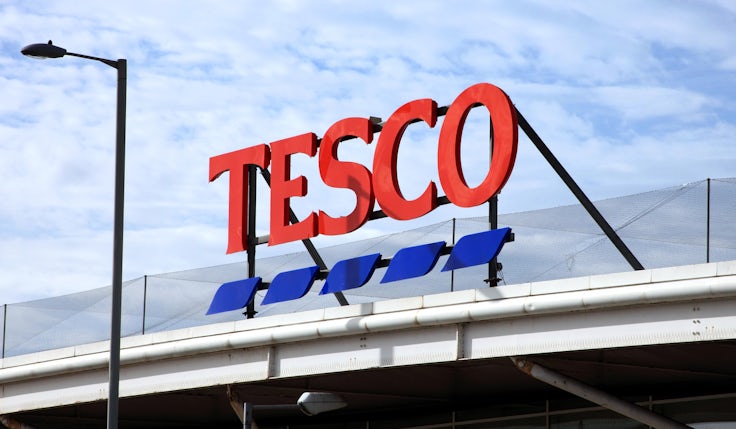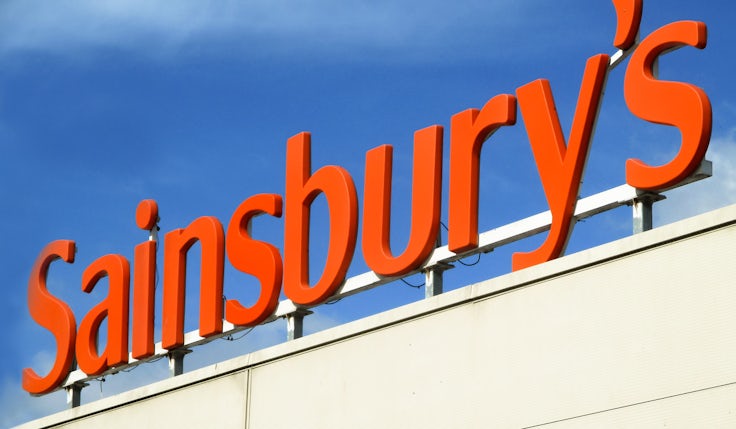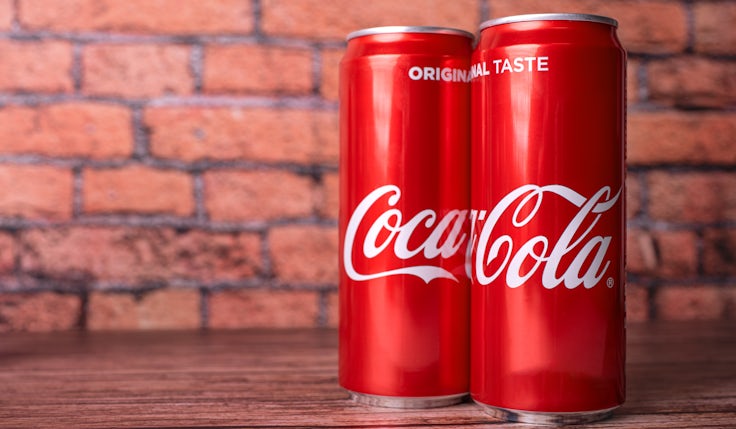Tesco CEO claims retailer ‘more competitive than ever’ on value
Tesco retains a “healthy dose of paranoia” about taking on the “intensely competitive” supermarket category, despite value play delivering market share gains.
 CEO Ken Murphy claims Tesco is “more competitive than [it’s] ever been, from a value point of view”, as the retailer returned to volume growth in the second half of the year.
CEO Ken Murphy claims Tesco is “more competitive than [it’s] ever been, from a value point of view”, as the retailer returned to volume growth in the second half of the year.
Reporting its preliminary results for the year ending 24 February today (10 April), Tesco saw sales grow 7.2% year-over-year to £61.48bn. While in recent months the inflationary environment drove sales growth via higher prices, the retailer reported positive volume growth in the second half of the year.
Tesco also touted its competitiveness. The supermarket saw value market share (how much was spent) increase by 28 basis points and its volume share (how many items were bought) rise by eight basis points.
Murphy, speaking to media this morning, expressed confidence in Tesco’s ability to win market share. The supermarket has been taking share from premium retailers for 19 consecutive periods, he claimed. The Tesco CEO credited the premium own-label Finest range in helping the retailer win this share, adding that Tesco Finest is now a “£2bn brand” in its own right.
We feel quite good about where we’re at, at the moment, but you really can’t take your eye off the ball for a day.
Ken Murphy, Tesco
As well as taking share from the premium retailers, Murphy also highlighted that Tesco is cheaper than Asda.
“We’ve never been cheaper than Asda in our history, but we’ve been consistently so for 16 months,” he said.
While Murphy and his team are confident in their current offering, given the competitiveness of the supermarket sector, complacency isn’t an option.
“We feel quite good about where we’re at, at the moment, but you really can’t take your eye off the ball for a day,” Murphy said.
He reported Tesco has seen some “resurgence” from Morrisons under its new leadership, adding he expects the competition to “ebb and flow” without letting up.
“One of the characteristics of anybody in grocery retail is a healthy dose of paranoia, because we’re in such an intensely competitive environment. We see threats from all sorts of angles,” Murphy stated.
Standing out on value
According to Tesco, the supermarket is at its most competitive ever on value, having achieved this through a “unique customer offer”, combining its Aldi Price Match initiative, Clubcard Prices (which give members access to exclusive deals) and Low Everyday Prices (which signposts value offers on brands).
The retailer is “doubling down” on these initiatives, with Murphy stating “consistency” will help Tesco win share going forward. However, for each of these initiatives, there are rival versions.
All the traditional ‘Big Four’ (Tesco, Sainsbury’s, Asda, Morrisons) price match to Aldi, with Asda and Morrisons price matching to both Lidl and Aldi. Sainsbury’s and Morrisons, as well as fellow grocer Co-op, also have exclusive deals for loyalty members.
Just last week, Sainsbury’s introduced its own ‘Low Everyday Prices’ initiative, which operates very similarly to Tesco.
Sainsbury’s follows Tesco with ‘Low Everyday Prices’ push
Responding to a question about how Tesco would stand out on value amid a raft of similar initiatives, Murphy told Marketing Week the execution of these offers are as important as their introduction.
He explained success means ensuring the retailer offers value on “things that matter” to consumers and doing so with a level of “sophistication”. Tesco could stand out from competitors by ensuring the right products were available under the right initiatives, Murphy added.
Quality works in conjunction with price to drive value perceptions, Murphy said, as does convenience. He explained Tesco is working on making sure its ranges are of good quality and the retailer is easily accessible to shoppers.
Availability of products and the shopping experience were the final two factors he said Tesco is focusing on to set itself apart from the rest of the sector.
Cautiously optimistic
The cost of living crisis is still impacting consumers, hence why Tesco believes it is so important to invest behind its value perceptions.
According to figures from YouGov Brand Index, the retailer has seen success in driving value perceptions. Tesco’s value score rose to 24.8 in the six months to 9 April, versus 19.3 during the previous six months.
An easing of the rate of inflation may have bolstered these value perceptions. Asda also saw its value perceptions rise (albeit more modestly) from 23.4 during the previous six months to 26.3, meaning that despite Tesco’s claims to have been consistently cheaper than Asda for over a year, consumers still perceive the latter as being better value.
Retail sales ahead of inflation despite ‘fragile’ consumer confidence
As inflation eases, Murphy said he “inevitably” expects like-for-like comparisons to be weaker, as these had been bolstered by rising prices. He does expect both volume and value growth this year, however, claiming to have seen “a gentle improvement in customer sentiment”.
Murphy was also asked about the ongoing investigation into supermarket pricing by the Competition and Markets Authority (CMA). The investigation is seeking to establish whether loyalty schemes are of detriment to the majority of consumers and reducing competition.
Tesco is working very closely with the CMA, Murphy said, claiming the supermarket is confident in the value Clubcard offers customers.
“We feel like we have a very compelling platform that really works for consumers and will continue to do so,” he added.







